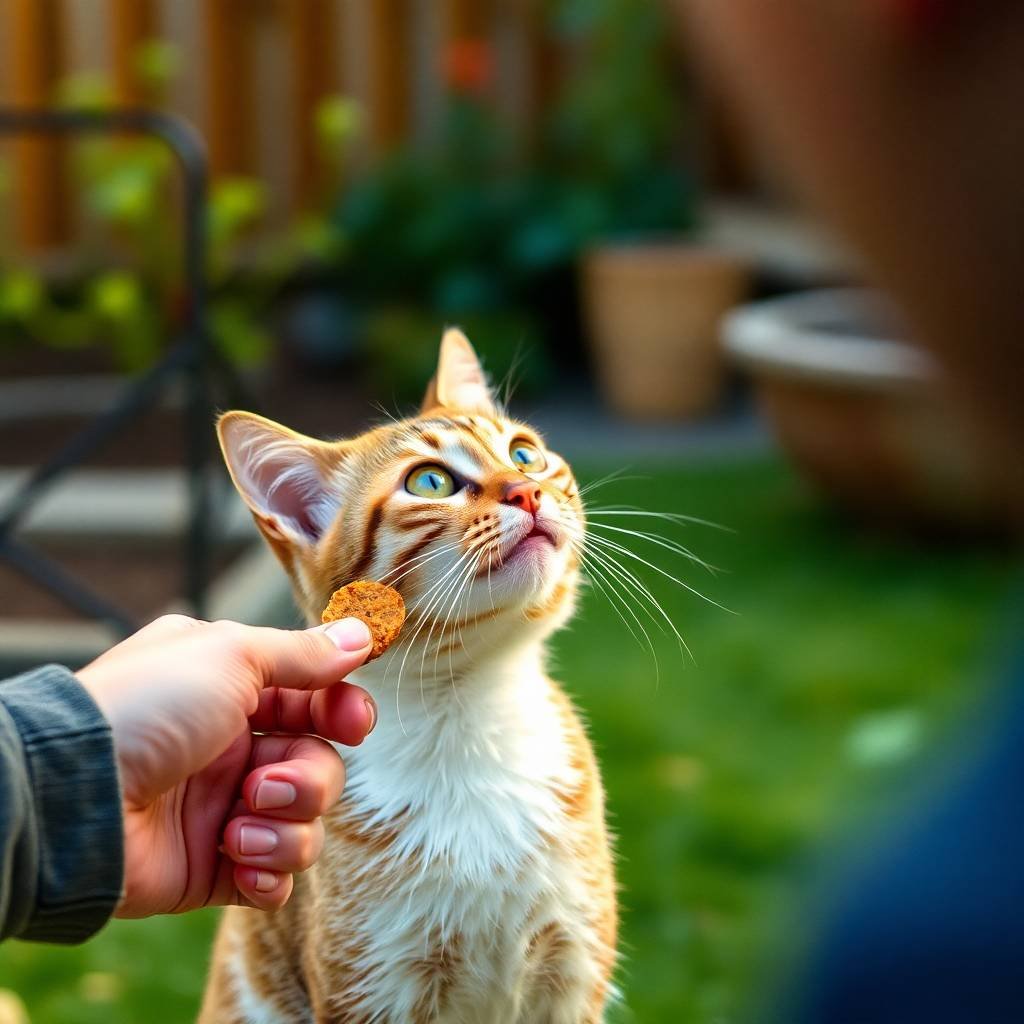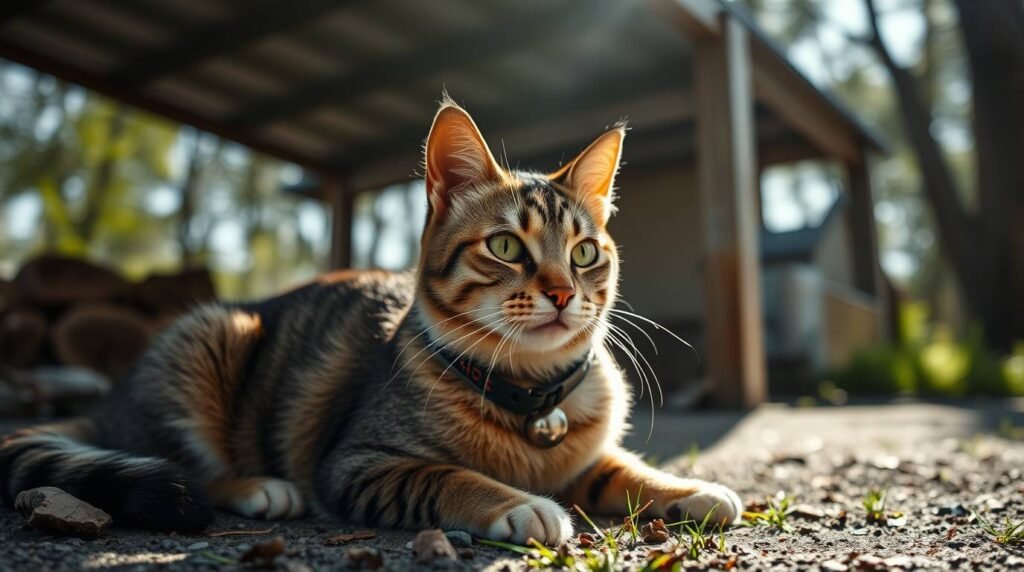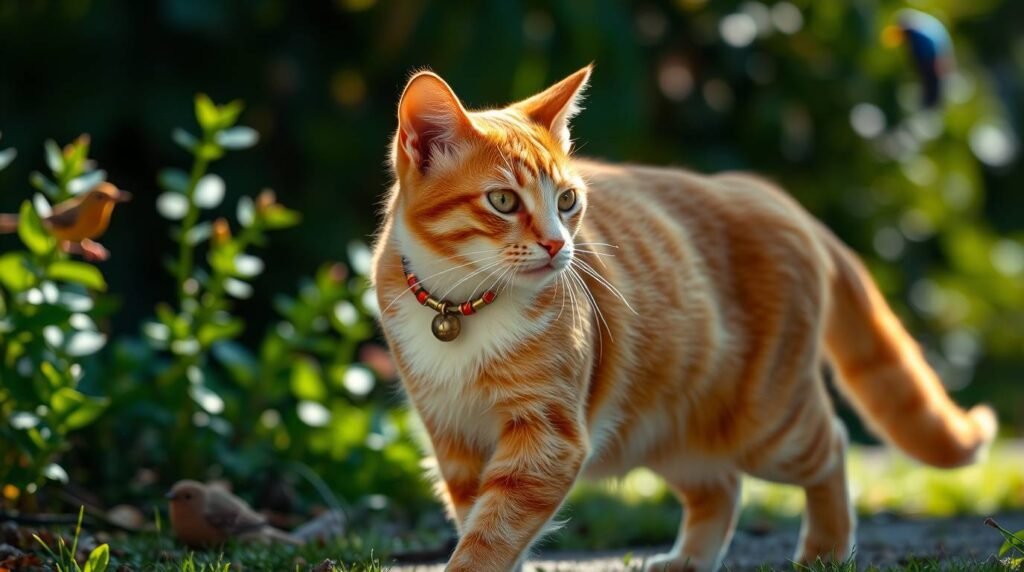Are you thinking about adopt outdoor cats? Many people believe that outdoor cats can be independent and self-sufficient, but they still require proper care, food, and shelter. Whether you find a stray cat in need of a home or adopt from a shelter, taking care of an outdoor cat comes with responsibilities.
In this guide, we’ll explore everything you need to know before adopting an outdoor cat, from preparing a safe environment to ensuring their health and well-being.
Why Should You Adopt an Outdoor Cat?
There are many reasons why adopting an outdoor cat can be a great idea. Unlike indoor cats, outdoor cats are more active, and they can help control the mouse population in your area. Here are some of the main benefits:
1. Natural Pest Control
One of the biggest advantages of having an outdoor cat is their hunting instinct. They can keep your backyard or farm free from rats, mice, and other pests.
2. Less Need for Litter Boxes
Unlike indoor cats, an outdoor cat does not require a litter box inside your home. They usually relieve themselves outside, reducing the need for daily litter box maintenance.
3. More Space to Explore
Outdoor cats have the freedom to roam, climb trees, and engage in natural behaviors that indoor cats often miss out on.
4. Companionship for Other Pets
If you have other outdoor animals, such as farm animals or even other cats, an outdoor cat can provide companionship and social interaction.
Want to Adopt Outdoor Cats? But Couldn’t Find?
There are several ways to adopt an outdoor cat. Here are some options:

1. Animal Shelters and Rescues
Many shelters have feral or semi-feral cats that are better suited for outdoor living. Ask local shelters if they have “working cats” or “barn cats” available for adoption.
2. Outdoor Cats in Your Neighborhood
If you notice an outdoor cat frequently visiting your yard, it may be looking for a safe home. However, ensure the cat is not someone else’s lost pet before adopting it.
3. Online Websites for adopt outdoor cats
Websites like Petfinder, Adopt-a-Pet, and local Facebook groups list outdoor cats for adoption. These platforms share details about the cat’s health, vaccinations, and temperament. Many rescue groups and shelters also have outdoor cats looking for homes and may offer spaying or neutering services before adoption.
How to Prepare for an Outdoor Cat?
1. Providing Shelter
Even though outdoor cats are used to living outside, they still need a safe and warm place to sleep. A simple DIY cat house or a cozy barn corner can work, providing shelter from bad weather and a comfortable resting spot.
2. Food and Water
Outdoor cats need fresh food and clean water every day. Put their food in a sheltered spot to keep it dry and safe from rain or other weather.
3. Safety Considerations
Make sure the area where the outdoor cat stays is safe. Avoid busy roads that can be dangerous and remove any toxic plants that could harm them. A safe environment is important for their well-being and protection.
Understanding Outdoor Cat Behavior
1. Independent Nature
Outdoor cats are usually more independent than indoor cats. They may not always seek human attention but will appreciate food and shelter.
2. Hunting Instincts
Outdoor cats are natural hunters and will catch mice, birds, and insects. However, it’s best to provide them with regular food to prevent excessive hunting.
3. Socializing with Other Animals
Some outdoor cats like to interact with other pets, while others prefer being alone. It’s important to watch how they behave and make changes based on what they’re comfortable with. Always respect their space and needs.
Feeding an Outdoor Cat
1. Best Food for Outdoor Cats
Outdoor cats require a high-protein diet to stay healthy and strong. Choose cat food that lists real meat, like chicken or beef, as the first ingredient. This helps provide the essential nutrients they need for energy, muscle development, and overall well-being.
2. Feeding Schedule
To keep your cat healthy and close to home, it is important to have a regular feeding schedule. Feed your cat twice a day, at the same time each day. This routine will help your cat stay healthy and ensure it gets the right amount of food.
Ensuring Safety and Health
1. Vaccinations and Vet Check-Ups
Outdoor cats are more likely to catch diseases compared to indoor cats. Therefore, regular vet visits and vaccinations are very important to keep them healthy. These visits help prevent illness and ensure your cat stays protected from common outdoor diseases.

2. Protecting from Predators
Foxes, coyotes, and large birds can be dangerous to outdoor cats. To keep them safe, provide a secure shelter where they can hide and stay protected from these threats. A safe space will help your cat feel secure while being outdoors.
3. Flea and Parasite Control
Use flea collars or treatments to prevent flea infestations on your cat. Additionally, make sure to deworm your cat regularly to keep them healthy and free from parasites. These steps help protect your cat from common health issues.
Training and Socializing Your Outdoor Cat
1. Getting the Cat Used to Its New Home
When bringing an outdoor cat to a new location, keep it in a confined space for a few days so it can get used to the surroundings.
2. Teaching Basic Commands
While outdoor cats may not be as trainable as indoor cats, they can learn simple routines like coming when called, especially if rewarded with food.
Legal and Ethical Considerations
1. Local Laws on Outdoor Cats
Some areas have rules about free-roaming cats. Before letting your cat go outside, make sure to check the local laws to avoid any issues. This will help you keep your cat safe and follow the regulations in your area.
2. Ethical Responsibility
If you adopt an outdoor cat, it’s your responsibility to provide food, water, shelter, and medical care. Ensuring your cat’s well-being is important for its health and safety, whether it spends time indoors or outdoors.
How to Keep an Outdoor Cat Warm in Winter?
1. Heated Shelters
A small insulated cat house with straw bedding can help keep your cat warm during cold weather. The insulation traps heat, while the straw provides comfort and warmth, making it a safe and cozy shelter for your cat.
2. Insulated Bedding
Avoid using blankets for your cat’s shelter, as they absorb moisture. Instead, use straw or thermal bedding, which helps keep your cat dry and warm, especially in cold weather. These materials are better at providing comfort and insulation.
3. Providing Extra Food
Outdoor cats burn more calories in winter to stay warm, so it’s important to increase their food portions. Providing extra food will help them maintain energy and stay healthy during the colder months.

Dealing with Common Challenges
1. Cats Wandering Too Far
If your cat roams too far, try feeding it at the same time and place every day to encourage it to stay close.
2. Aggressive Behavior
Some outdoor cats may become aggressive because of territorial instincts. Neutering or spaying your cat can help reduce this aggression, making them more calm and less likely to fight with other animals.
Outdoor Cats and Wildlife
1. Impact on Birds and Small Animals

Outdoor cats can harm local wildlife by hunting birds and small animals. To minimize their impact, consider placing a bell on your cat’s collar. The bell alerts wildlife, giving them a chance to escape before the cat gets too close.
2. Ways to Reduce Hunting
Feed your cat well and provide plenty of toys to help reduce their hunting instincts. Keeping them well-fed and entertained can lessen the urge to hunt, making them more content and focused on play instead of chasing wildlife.
Adopting vs. Rescuing a Stray Cat
- Adopting an Outdoor Cat: A cat that usually comes from a shelter has typically received some medical care, including vaccinations and basic health checks. However, it’s important to continue providing regular veterinary care to ensure their long-term health and well-being.
- Rescuing a Stray: A cat from a shelter may require extra medical care and socialization efforts. Some cats might need additional attention to adjust to a new home or recover from past health issues. Patience and care will help them settle in and thrive.
When to Transition an Outdoor Cat to an Indoor Cat?
If your cat gets sick, injured, or becomes too old, bringing them indoors might be the best choice. This can help protect them from further harm and make it easier to monitor their health. An indoor environment will also keep them safe, comfortable, and provide the care they need as they recover or age.
Conclusion
Adopting an outdoor cat can be a rewarding experience. Although these cats are independent, they still need food, shelter, and medical care. By giving them a safe environment, you help ensure they stay healthy and happy. Taking care of their needs will provide them with a good life and make them feel comfortable.
FAQs
1. Can an outdoor cat become an indoor cat?
Yes, with patience and training, an outdoor cat can adjust to indoor life.
2. How long do outdoor cats live?
Outdoor cats typically live 5–10 years, but with proper care, they can live longer.
3. How can I protect my outdoor cat from dangers?
Provide a safe shelter, regular vet care, and avoid high-traffic areas.
4. Should I microchip my outdoor cat?
Yes, microchipping helps in case your cat gets lost.
5. Do outdoor cats need toys?
Yes! Toys can keep them entertained and reduce excessive hunting.




This article is very helpful for anyone who wants to adopt an outdoor cat. It gives clear tips on how to provide food, shelter, and safety for them. I like how it explains the benefits of adopting outdoor cats, like helping with pest control and giving them a better life. The guide also teaches about their behavior and health care, which is useful for new pet owners. This is a great resource for people who love cats and want to care for them properly!
This guide is very useful for anyone thinking about adopting an outdoor cat. It explains how to give them food, shelter, and a safe place to live. I like how it also talks about their behavior and health needs, which helps new pet owners understand them better. The article makes it easy to learn how to care for outdoor cats in a simple and clear way. A great read for cat lovers!